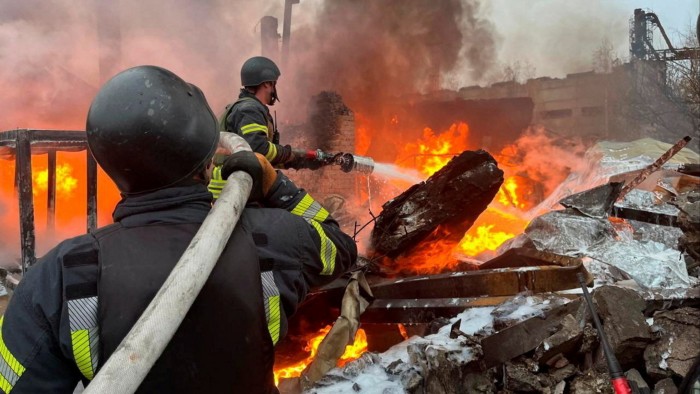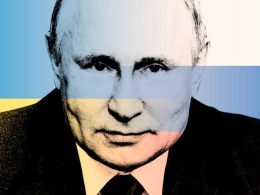Stay informed with free updates
Simply sign up to the Geopolitics myFT Digest — delivered directly to your inbox.
As a victorious Donald Trump brings “America first” ideology back to the White House, leaders across the Atlantic are confronting the reality of “Europe, alone”. They ought to be prepared: for eight years they have openly admitted the need for Europe to stand on its own two feet. Yet they still find themselves caught up short, like pupils having put off their homework to the last minute.
It is, however, clear what Europe’s goals must now be — and they are shared by members and non-members of the EU. Deny Russia’s Vladimir Putin the success in Ukraine that would encourage him to deepen the threat to their own freedom as liberal democracies. Achieve the carbon transition that will reduce the intertwined vulnerability of destabilising climate change and Europe’s energy dependency. Boost domestic innovation and investments to improve productivity so as not to be at the mercy of technology and growth from elsewhere.
While few put it this way, leaders know they must make Europe great again. But all the best intentions keep foundering on an inability, so far, to will the means to these ends. Too many good policy ideas — such as those in Enrico Letta’s and Mario Draghi’s recent reports — are met with a nod, then the question: but where is the money going to come from?
There is too much learnt helplessness here. Of course big questions have to be faced about the EU budget and both national and common borrowing. But even without a big change in EU budgeting, Europe — and the EU especially — has more resources available than it is keen to admit.
Start with Ukraine, which Europe must now be willing to fund fully on its own. If Ukraine loses Putin’s war of conquest, it is Europe’s security that is permanently weakened, and its geopolitical autonomy that is doomed. In its own interest, Europe must fill the hole left by a definitive end to US support.
For half a year, Europe and the outgoing Biden administration have worked to advance $50bn on future private profits derived from Russian state money immobilised in western financial institutions. They may get it across the line before power shifts in Washington, but it’s barely enough to get Ukraine through the winter. Much better would be to seize the full $300bn or so of Russian state assets.
This is in Europe’s hands. Most of it is held captive by EU sanctions in the Belgian securities depository Euroclear, with some in other European institutions (including in the UK). The legal debate has been exhausted, with at least two viable routes to seizure identified: one based on countermeasures against Russia’s breaches of international law, the other on the setting off of reciprocal claims (in this case Moscow’s undeniable and much greater financial compensation obligations to Ukraine).
It comes down to Europe’s political will. Western governments have repeatedly vowed to keep the reserves blocked until Moscow pays Kyiv what it owes; seizure and transfer would simply enforce that obligation promptly.
What about Europe’s own defence and investment needs? Politicians naturally want the private sector to fund as much as possible, and look to institutions such as the European Investment Bank to attract large chunks of private funds with thin morsels of public spending. They rarely mention that, whatever the financial engineering, private funds have to come from somewhere: real resources actually have to be taken away from their current uses if they are to fund new ones.
That is a challenge for a country such as the UK, whose long-standing current account deficit means new priorities must largely be funded by reallocated resources previously deployed domestically. But the EU has a big current account surplus. EU leaders cannot in good faith argue that resources are lacking when the bloc exported €450bn in surplus savings in the last four quarters, largely to the other G7 economies and offshore financial centres.
The point is not to target a smaller surplus. As Trump is about to find out, targeting a particular external balance is hard because it reflects domestic savings and investment choices. But EU leaders should be clear that the world in which a European economic transformation succeeds most easily is one in which the EU is no longer a surplus economy but rather deploys all its domestic resources, is relaxed about imports and graduates from an excessive reliance on export demand.
That’s a big mental shift, but one well suited to a mercantilist-in-chief hell-bent on rebalancing the global economy. The EU’s task is to make that rebalancing work in Europe’s interest.
Source link









